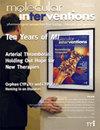From Treasure To Trash Island Colonialist Fantasies Of Island Wealth Reworked In Satin Island By Tom Mccarthy And Crazy Rich Asians By Kevin Kwan
引用次数: 0
Abstract
Neoliberal practices of speculation and fabulation are increasingly compromising established notions of truth on the one hand and fiction on the other. As presaged by Fredric Jameson at the end of last century when he defined globalization as the demoralizing and depressing “‘moment of truth’ of postmodernism,” contemporary writers are currently facing a foreclosure upon “imaginable alternatives” to neoliberal capitalism. Fiction, one might argue, is being superseded by the dazzling reality of the phantasmagorical journeys on which today’s financiers send their fictitious capital, by the positively surreal profits made on these journeys, and by the fantastically intricate schemes ensuring that these profits end up as safely hidden treasures in highly exclusive offshore locations. At the same time as writers and critics are grappling with this entrapment, a different notion of beyondness is regaining currency outside the literary field – a notion, once central to those iconic western fantasies of island wealth, which for centuries helped promote European expansionism and popularize an ideology that favoured the competitive acquisition and exclusive ownership of wealth over the collective creation and possession of what would have been seen as “common” wealth. To convey just how varied contemporary reactivations of the colonialist island discourse can be, this essay juxtaposes two radically dissimilar novels: Satin Island by the British writer Tom McCarthy and Crazy Rich Asians by the American writer of Singaporean descent, Kevin Kwan.殖民主义者对岛屿财富的幻想在汤姆·麦卡锡的《缎岛》和凯文·关的《疯狂的亚洲富人》中重现
新自由主义的推测和虚构的实践,一方面正在日益损害既定的真理观念,另一方面也在损害虚构观念。正如弗雷德里克·詹姆逊在上世纪末所预言的那样,他将全球化定义为令人沮丧和沮丧的“后现代主义的‘真理时刻’”,当代作家目前正面临着对新自由主义资本主义的“可想象替代方案”的丧失。有人可能会说,今天的金融家们把他们虚构的资本投入到令人眼花缭乱的梦幻旅程中,在这些旅程中获得的绝对超现实的利润,以及确保这些利润最终作为安全的宝藏隐藏在高度排外的离岸地点的奇妙复杂的计划,正在取代小说。与此同时,作家和评论家正在努力摆脱这种困境,一种不同的超越概念正在文学领域之外重新流行起来——这种概念曾经是那些标志性的西方岛屿财富幻想的核心,几个世纪以来,它帮助促进了欧洲的扩张主义,并普及了一种意识形态,这种意识形态倾向于竞争性获取和对财富的独家所有权,而不是集体创造和拥有被视为“共同”财富的东西。为了表达殖民主义岛屿话语的当代复兴有多么多样化,本文将两部截然不同的小说并列在一起:英国作家汤姆·麦卡锡(Tom McCarthy)的《缎岛》(Satin island)和新加坡裔美国作家关凯文(Kevin Kwan)的《疯狂的亚洲富人》(Crazy Rich Asians)。
本文章由计算机程序翻译,如有差异,请以英文原文为准。
求助全文
约1分钟内获得全文
求助全文

 求助内容:
求助内容: 应助结果提醒方式:
应助结果提醒方式:


